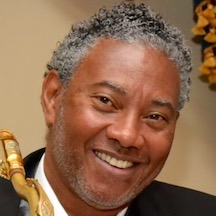 The board of curators at historically Black Lincoln University in Jefferson City, Missouri, has appointed Alphonso Sanders as provost and vice president for academic affairs.
The board of curators at historically Black Lincoln University in Jefferson City, Missouri, has appointed Alphonso Sanders as provost and vice president for academic affairs.
Lincoln University enrolls about 2,500 undergraduate students and just over 100 graduate students, according to the latest data supplied to the U.S. Department of Education. African Americans make up 47 percent of the undergraduate student body.
Dr. Sanders has been serving as a professor of music, chair of fine arts, and director of the B.B. King Recording Studio at Mississippi Valley State University. He has studied Chinese music and visual arts as a Fulbright Scholar.
Professor Sanders holds degrees from Mississippi Valley State University and Valdosta State University in Georgia. He earned a doctorate in music from the University of Mississippi.












Congratulations!!! Greater things are about to happen at Lincoln University!!!